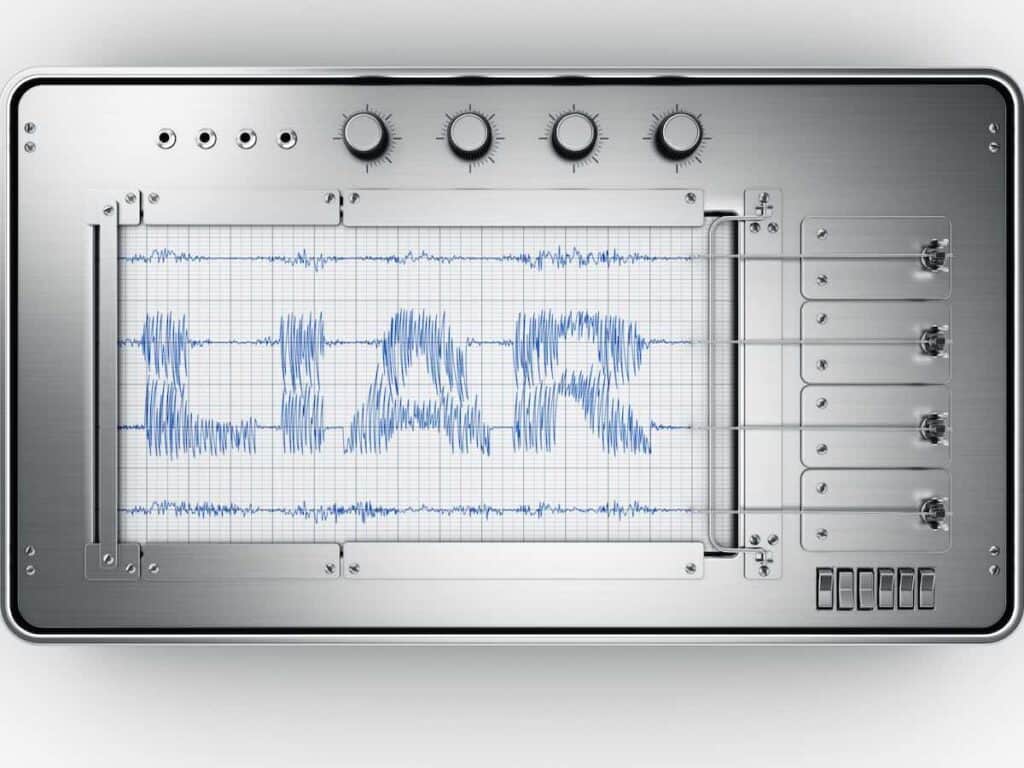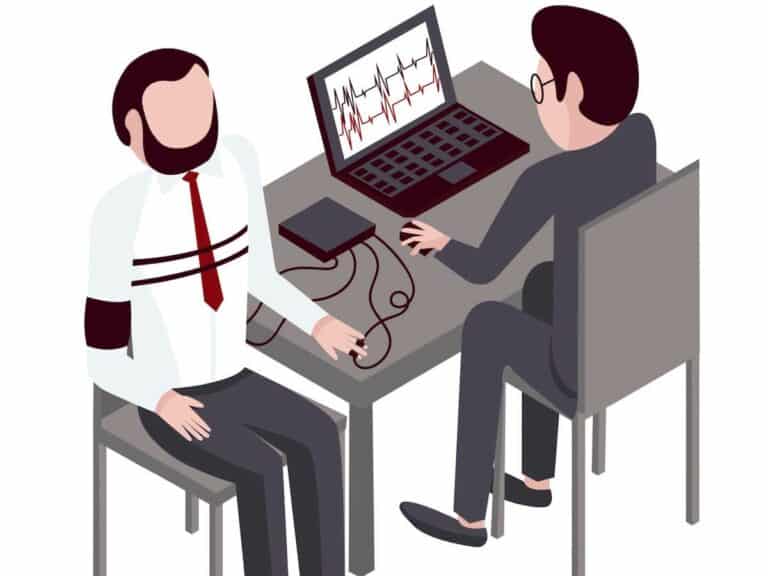Here’s What Happens If You Lie on a Polygraph
There are numerous situations where you can be asked to undergo a lie detector test. Similarly, there are many different possible consequences, including especially unfavorable ones, for not passing it. And this is why it’s not uncommon for some polygraph examinees to plan on lying during the test to avoid the perceived ramifications of a failed result.
Lying on a polygraph can lead to different things, depending on the exam’s purpose. Deception can cause people to fail it, which can result in losing eligibility for high-risk jobs, revocation of parole or dissolution of marital relationships. Lying on a polygraph, however, rarely leads to a conviction or imprisonment.
Don’t stop reading now if you are about to be subjected to a lie detector test anytime soon and thinking about lying to keep a failed result at bay as well as anything that can stem from it.
In this post, I will talk about some of the things that can happen if you lie on a polygraph examination, no matter if it’s for a job application, workplace issue, criminal investigation, supervised release management or marital issues. After checking this out, you will have a much better idea of whether or not lying while taking a lie detector test is the way to go.
Pre-Employment Screening
The Employee Polygraph Protection Act (EPPA) allows some private companies and all government agencies to conduct a polygraph exam as a part of a pre-employment screening process. This is especially true if the job position is sensitive, such as one that involves money, controlled substances, confidential information and national security.

Disagreeing to undergo a polygraph test, of course, is always possible. However, chances are that it will result in the employer giving the job to someone who is willing to take the exam and eventually passes it.
It goes without saying that failing a lie detector test can result in ineligibility for the job.
But almost always, an inconclusive polygraph exam result, which means that the examiner was unable to come up with a definite diagnosis of truth or deception, calls for a retake. There are times, too, in which the employer will warrant an investigation in order to determine what could have caused an inconclusive result.
Screening of Current Employees
Other than as a pre-employment screening process, the EPPA also allows some employers to ask individuals to take a lie detector test during the course of their employment.
However, it’s important to note that the examination is subject to restrictions and limitations.
Certain employees, for instance, may be subjected to a polygraph test if they are reasonably suspected of being involved in a workplace incident, such as theft or embezzlement, which resulted in an injury or specific economic loss to their employers. The lie detector test, also, can be used only for the matter being investigated.
Even if the examinees fail the polygraph test, the result should remain confidential and cannot be used by employers who warranted the examination to discipline, discriminate against or discharge them.
If allowed by the EPPA, the lie detector test should meet strict standards. For instance, the exam should be conducted by an examiner who is licensed, if required by the state, and bonded or have professional liability coverage. The employees involved should also be provided with a 48-hour advanced written notice.
Criminal or Civil Investigations/Trials
Polygraph examinations are commonly conducted in police stations or crime investigation departments of certain federal agencies for investigating all sorts of criminal and civil cases.
However, more often than not, a lie detector test is commonly used in civil courts.

And speaking of which, the results of a polygraph examination do not have admissibility in certain courts, depending on jurisdictions and states. Where it has admissibility, the polygraph test must be done with restrictions and both parties should mutually agree to use the result before the court judge accepts it.
A failed result does not lead to a conviction, including if the lie detector test is carried out by police officers. In most instances, law enforcers conduct a polygraph in order to build a case. Commonly, too, it’s used to help provide direction and focus to criminal investigations.
Sex Offender Management
Because the physical and psychological harm caused by sex offenses can be traumatic, it’s important to minimize their impact on the victims as well as prevent subsequent sex crimes from being committed.
It’s for this reason why a lie detector test is commonly administered to sex offenders who are on parole or under supervised release, which can help in determining if they should progress under the treatment or whether necessary modifications to the program will have to be made.
Regular polygraph among sex offenders is called maintenance exams, which is usually conducted every 6 months.
In a nutshell, maintenance exams are done in order to determine sexual behaviors and issues with compliance with the supervised release conditions. Scheduled lie detector tests may also be used for investigating the possibility of new unlawful sexual behaviors while the subjects are under the treatment program.
Cheating/Infidelity Testing
Having an affair is a common problem among couples. Whether civilly united or married, cheating can wreak havoc on the relationship as well as on the mental and emotional wellness of the other party or, in some instances, both parties. And there are times when a lie detector examination can help in the pursuit of truth.
Getting a failed polygraph result may cause further loss of trust in the partner or relationship itself.
A person who is suspected of cheating and denies the allegation may be asked to be strapped to a lie detector machine in order to determine whether or not he or she is telling the truth. Or someone who is thought of as being unfaithful may volunteer to undergo a polygraph examination as proof of innocence and truthfulness.

Having a polygraph test, at times, can serve as the catalyst for partners to undergo couples therapy, which is a form of psychotherapy that can provide help to two romantically linked individuals to improve their relationship.
Just Before You Attempt to Lie on a Polygraph
Because a polygraph examination is, according to proponents, anywhere from 80% to 90% accurate, it’s very much likely for the examiner to spot attempts by the subject to beat the test by telling lies. Needless to, this will cause the examinee to fail the lie detector test, except in rare instances where the result is a false negative.
Keep in mind that failing a polygraph examination does not necessarily mean that one will lose eligibility for a sensitive job position, a place in a supervised release program or the trust of a partner.
It’s also unlikely to result in a conviction or jail time, especially since a polygraph isn’t admissible in all courts.
Honesty is the best policy in the many spheres of life. The same is true for anyone who is taking a lie detector examination and wants to pass it, too. No matter how innocent you are of a crime or how eligible you are for a job, being deceptive during a polygraph can result in a number of things, some of which are not necessarily what you fear would happen.
Related Questions
Should I take a polygraph test if I’m innocent?
No one can be forced to take a lie detector test. If you agree to be subjected to it in order to show your innocence, being truthful all the time can increase your chances of passing the test. Still, there are instances where truthful persons are reported to be deceptive, a result referred to as a false positive.
Should you eat before a lie detector test?
Individuals who are preparing for a polygraph examination should maintain a regular routine, including their eating habits. Skipping a meal out of anxiety or eating too much since it can take a polygraph exam 2 to 3 hours to complete can cause discomfort, which can have an effect on the result of the test.
Read Next: How To Clear Your Mind for a Polygraph Test






